The Alliance for Higher Education in Prison is excited to announce that registration for the 15th National Conference on Higher Education in Prison is open! This in-person convening will take place in Cleveland, Ohio April 8–10, 2026.
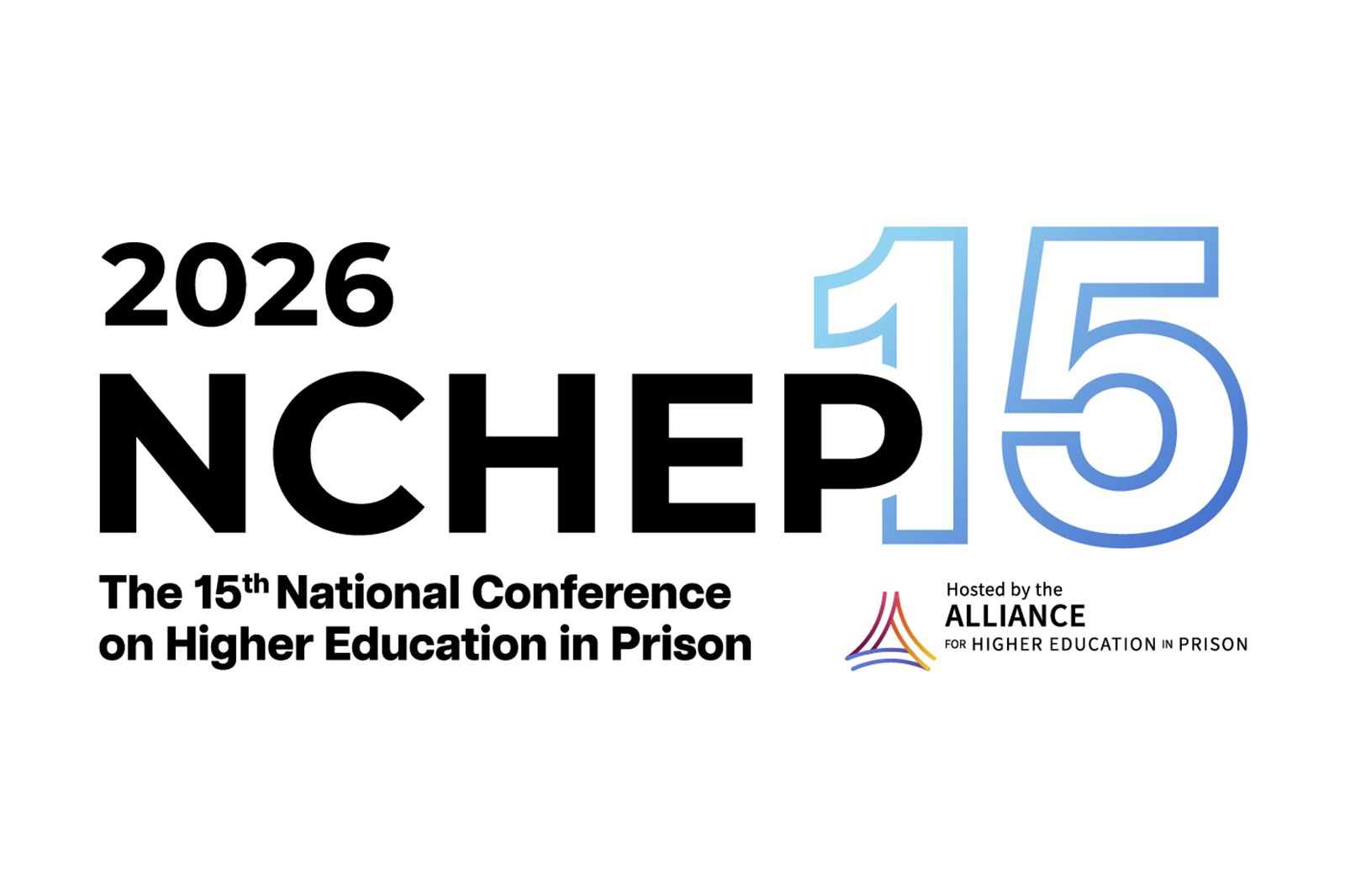
The Alliance for Higher Education in Prison is excited to announce that registration for the 15th National Conference on Higher Education in Prison is open! This in-person convening will take place in Cleveland, Ohio April 8–10, 2026.


This research brief highlights the practical and strategic benefits of developing a data dictionary, from supporting day-to-day operations to advancing long-term evaluation goals. It outlines a step-by-step process for creating one, beginning with an inventory of existing data and ending with the testing of a working draft. The brief also offers sample fields to guide formatting and design choices, along with tips for keeping the dictionary accurate and up to date. Ultimately, this resource is designed to help agencies strengthen their data infrastructure and enhance their capacity to track progress, assess outcomes, and demonstrate impact.

This research brief highlights the practical and strategic benefits of developing a data dictionary, from supporting day-to-day operations to advancing long-term evaluation goals. It outlines a step-by-step process for creating one, beginning with an inventory of existing data and ending with the testing of a working draft. The brief also offers sample fields to guide formatting and design choices, along with tips for keeping the dictionary accurate and up to date. Ultimately, this resource is designed to help agencies strengthen their data infrastructure and enhance their capacity to track progress, assess outcomes, and demonstrate impact.

Research shows getting educated in prison helps prevent people from going back. In Illinois, new state data shows higher education opportunities inside are sparse.

Research shows getting educated in prison helps prevent people from going back. In Illinois, new state data shows higher education opportunities inside are sparse.

The Alliance for Higher Education in Prison is now accepting presentation proposal submissions and financial aid applications for the 15th National Conference on Higher Education in Prison, which will take place on April 9-10, 2026, in Cleveland, OH.

The Alliance for Higher Education in Prison is now accepting presentation proposal submissions and financial aid applications for the 15th National Conference on Higher Education in Prison, which will take place on April 9-10, 2026, in Cleveland, OH.

Incarcerated at Eastern NY Correctional Facility, Robert — in addition to his work as an essayist — is a full-time Bard College student enrolled through Bard Prison Initiative. Featured in the Times’ "Finding Beauty" series, Robert writes about the loss experienced when trees — young and old, small and large — are felled in a prison yard. The work reminds us of the meaning each of us can make, and the harm any of us can do, as we choose to honor or ignore what is precious around us.

Incarcerated at Eastern NY Correctional Facility, Robert — in addition to his work as an essayist — is a full-time Bard College student enrolled through Bard Prison Initiative. Featured in the Times’ "Finding Beauty" series, Robert writes about the loss experienced when trees — young and old, small and large — are felled in a prison yard. The work reminds us of the meaning each of us can make, and the harm any of us can do, as we choose to honor or ignore what is precious around us.

People who are incarcerated are paid notoriously low wages for kitchen, laundry work and maintenance. But the expanded use of laptops is creating other opportunities. Preston Thorpe is only 32, but he says he's already landed his dream job as a senior software engineer and bought a modest house with his six-figure salary. It was all accomplished by putting in long days from his cell at the Mountain View Correctional Center in Charleston.

People who are incarcerated are paid notoriously low wages for kitchen, laundry work and maintenance. But the expanded use of laptops is creating other opportunities. Preston Thorpe is only 32, but he says he's already landed his dream job as a senior software engineer and bought a modest house with his six-figure salary. It was all accomplished by putting in long days from his cell at the Mountain View Correctional Center in Charleston.

For nearly 20 years, incarcerated individuals in Maine have been taking college classes for credit. Hundreds have graduated with associate, baccalaureate and even advanced degrees. It all started with an endowment from philanthropist Doris Buffet and her Sunshine Lady Foundation. Additional grants paved the way for the supervised use of laptops. And Maine is now the first state to offer remote work from prison. Forty-five prisoners have been hired by outside companies to do remote jobs from their cells. A few are earning more than corrections officers.

For nearly 20 years, incarcerated individuals in Maine have been taking college classes for credit. Hundreds have graduated with associate, baccalaureate and even advanced degrees. It all started with an endowment from philanthropist Doris Buffet and her Sunshine Lady Foundation. Additional grants paved the way for the supervised use of laptops. And Maine is now the first state to offer remote work from prison. Forty-five prisoners have been hired by outside companies to do remote jobs from their cells. A few are earning more than corrections officers.

This report, part of a multi-year research initiative, explores the current landscape of data use in the higher education in prison field and identifies barriers to building a more comprehensive and sustainable data infrastructure. Better data is essential to realizing the promise of higher education in prison.

This report, part of a multi-year research initiative, explores the current landscape of data use in the higher education in prison field and identifies barriers to building a more comprehensive and sustainable data infrastructure. Better data is essential to realizing the promise of higher education in prison.

A recap of the information shared at the August 20th Town Hall event (including the conference location!!).

A recap of the information shared at the August 20th Town Hall event (including the conference location!!).
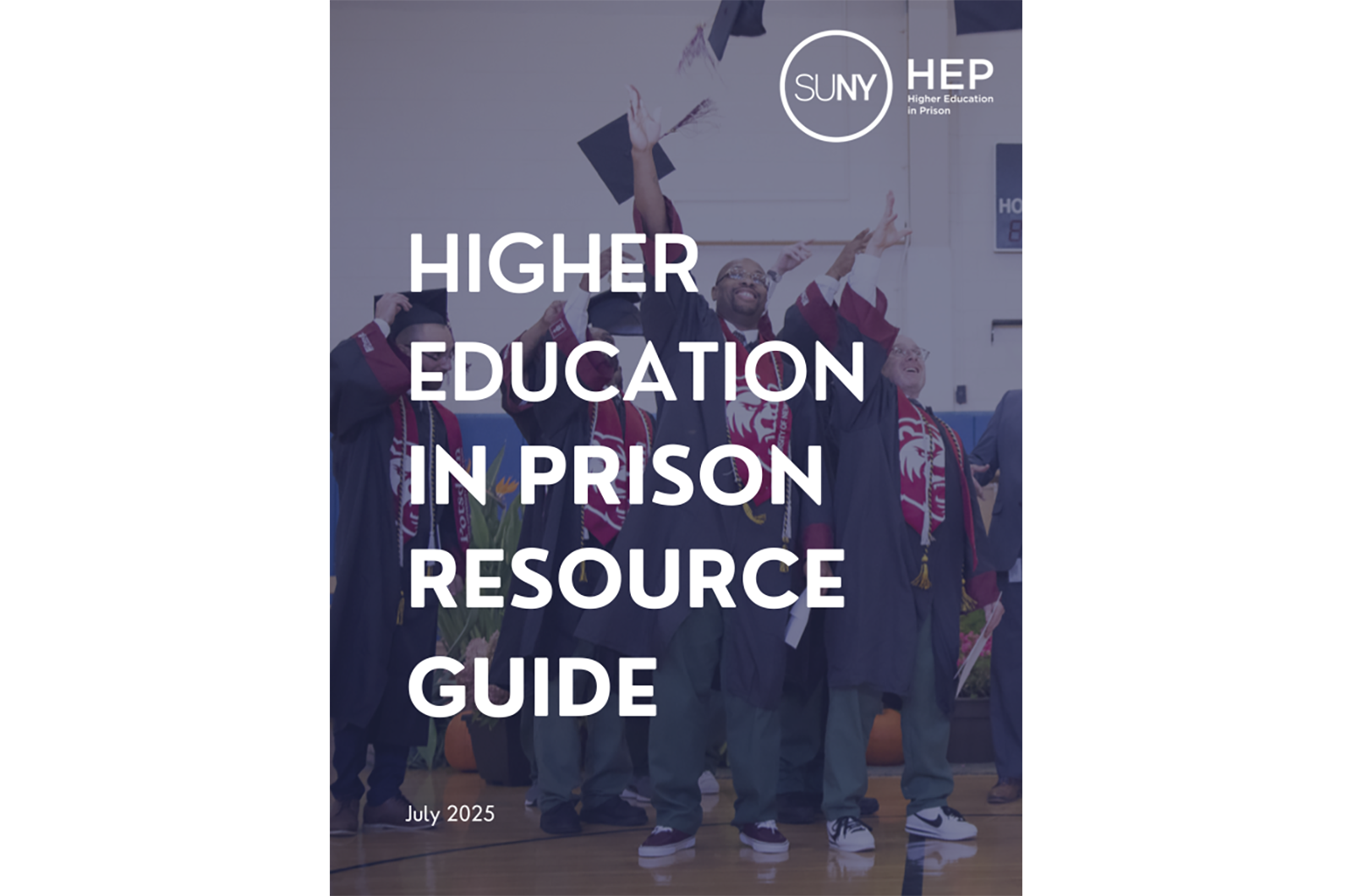
New to Higher Education in Prison or eager to learn more? SUNY has created a Resource Guide with some helpful resources. Whether you’re just starting out or looking to expand your knowledge, this guide can orient you to key issues in the field and support your continued learning!

New to Higher Education in Prison or eager to learn more? SUNY has created a Resource Guide with some helpful resources. Whether you’re just starting out or looking to expand your knowledge, this guide can orient you to key issues in the field and support your continued learning!

Led by Hudson Link for Higher Education in Prison, this initiative aims to enhance reentry support for currently and formerly incarcerated people pursuing higher education. With recent federal changes restoring Pell grants for incarcerated students, institutions now face the challenge of providing effective reentry services without additional funding. Hudson Link seeks to bridge this gap by selecting five programs nationwide to receive tailored technical assistance, capacity-building consulting, and direct financial support. The ultimate goal is to empower these programs to deliver comprehensive reentry services, thereby facilitating successful transitions and increasing post-release student success. Proposals Due: September 1, 2025

Led by Hudson Link for Higher Education in Prison, this initiative aims to enhance reentry support for currently and formerly incarcerated people pursuing higher education. With recent federal changes restoring Pell grants for incarcerated students, institutions now face the challenge of providing effective reentry services without additional funding. Hudson Link seeks to bridge this gap by selecting five programs nationwide to receive tailored technical assistance, capacity-building consulting, and direct financial support. The ultimate goal is to empower these programs to deliver comprehensive reentry services, thereby facilitating successful transitions and increasing post-release student success. Proposals Due: September 1, 2025

Rockwood is proud to announce the second cohort of the Fellowship for Leaders in Higher Education in Prison, in partnership with Ascendium. Created to deepen the pipeline of formerly incarcerated leaders in the sector by centering the justice-impacted leaders advancing change, this Fellowship will bring together 25 leaders nationwide engaged in Higher Education in Prison initiatives. The Fellowship will increase leadership capacity, strengthen relationships within and across the sector, and create fertile grounds for leaders to engage in powerfully collaborative and interconnected ways.

Rockwood is proud to announce the second cohort of the Fellowship for Leaders in Higher Education in Prison, in partnership with Ascendium. Created to deepen the pipeline of formerly incarcerated leaders in the sector by centering the justice-impacted leaders advancing change, this Fellowship will bring together 25 leaders nationwide engaged in Higher Education in Prison initiatives. The Fellowship will increase leadership capacity, strengthen relationships within and across the sector, and create fertile grounds for leaders to engage in powerfully collaborative and interconnected ways.

Jobs for the Future’s Center for Justice & Economic Advancement has launched the Fair Chance to Advance (FC2A) initiative to dismantle education and employment barriers and create broader pathways to economic advancement for people with histories of incarceration by improving alignment of systems and funding mechanisms at the state level. With this request for proposals, made possible by the support of Ascendium Education Group, JFF is inviting states to apply to be part of the inaugural cohort of FC2A State Action Networks. Letter of Intent Due: August 26, 2025 Proposal Deadline: October 14, 2025

Jobs for the Future’s Center for Justice & Economic Advancement has launched the Fair Chance to Advance (FC2A) initiative to dismantle education and employment barriers and create broader pathways to economic advancement for people with histories of incarceration by improving alignment of systems and funding mechanisms at the state level. With this request for proposals, made possible by the support of Ascendium Education Group, JFF is inviting states to apply to be part of the inaugural cohort of FC2A State Action Networks. Letter of Intent Due: August 26, 2025 Proposal Deadline: October 14, 2025

With generous support from Ascendium Education Group, THEI has created Navigating Forward, a collection of clear, digestible, and comprehensive college navigation materials designed specifically for incarcerated learners, with special consideration for the unique challenges and needs of Prison Education Program (PEP) students. Each collection is made up of individual resources that are able to standalone or be shared as a group. The three collections are also accompanied by a Glossary of Terms to help make the resources accessible for as many students as possible, regardless of their starting point.

With generous support from Ascendium Education Group, THEI has created Navigating Forward, a collection of clear, digestible, and comprehensive college navigation materials designed specifically for incarcerated learners, with special consideration for the unique challenges and needs of Prison Education Program (PEP) students. Each collection is made up of individual resources that are able to standalone or be shared as a group. The three collections are also accompanied by a Glossary of Terms to help make the resources accessible for as many students as possible, regardless of their starting point.

Thorpe is part of an experimental program in the Maine state prison system that allows incarcerated people to work remote jobs from custody. Though unconventional, these opportunities have proven immensely rehabilitative.

Thorpe is part of an experimental program in the Maine state prison system that allows incarcerated people to work remote jobs from custody. Though unconventional, these opportunities have proven immensely rehabilitative.
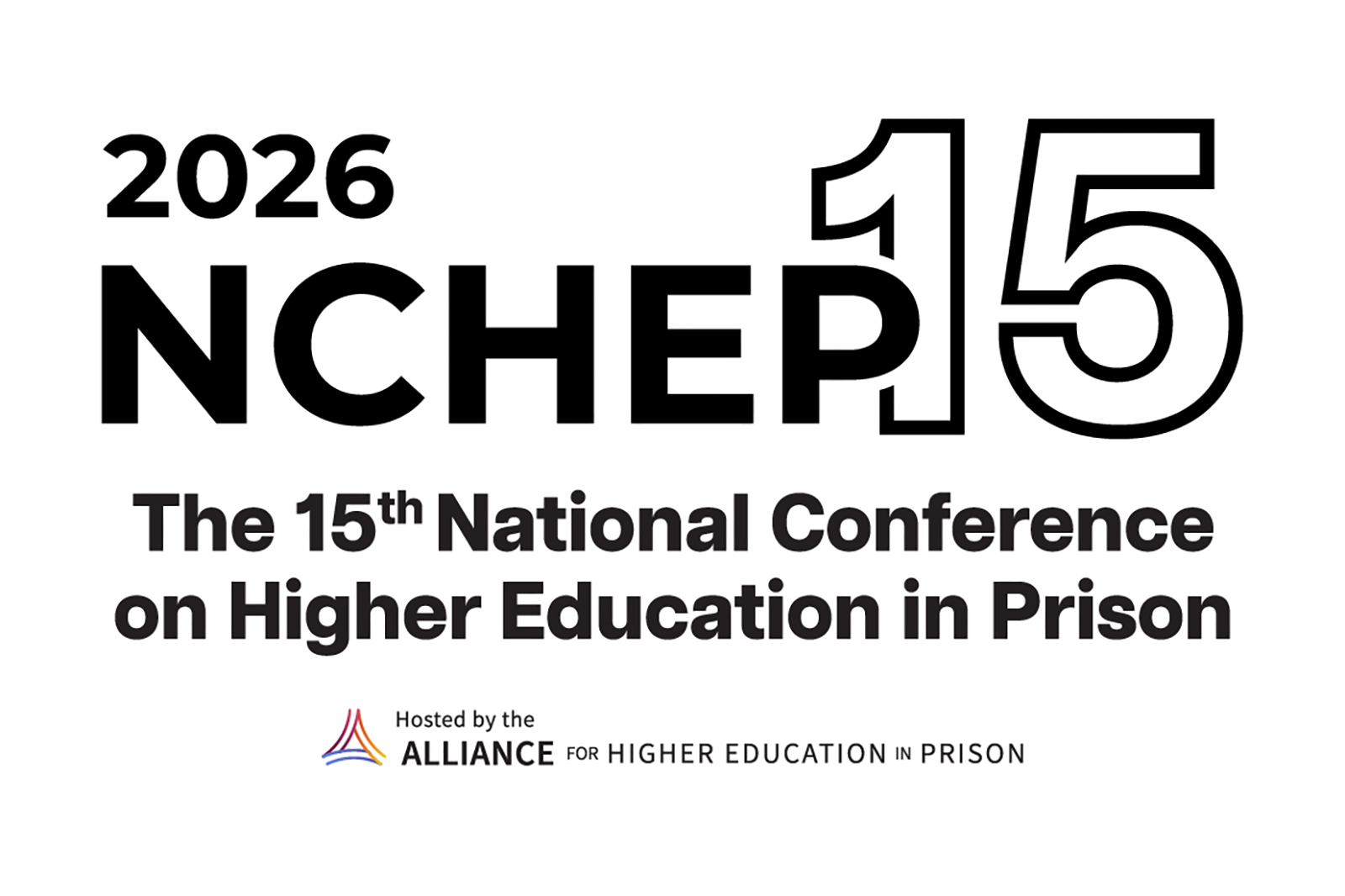
Some important announcements about the 2026 national conference!

Some important announcements about the 2026 national conference!

In a maximum-security facility in upstate New York, students tackled Samuel Richardson’s “Clarissa” and Tolstoy’s “War and Peace,” finding a sense of purpose that transcended ordinary coursework.

In a maximum-security facility in upstate New York, students tackled Samuel Richardson’s “Clarissa” and Tolstoy’s “War and Peace,” finding a sense of purpose that transcended ordinary coursework.
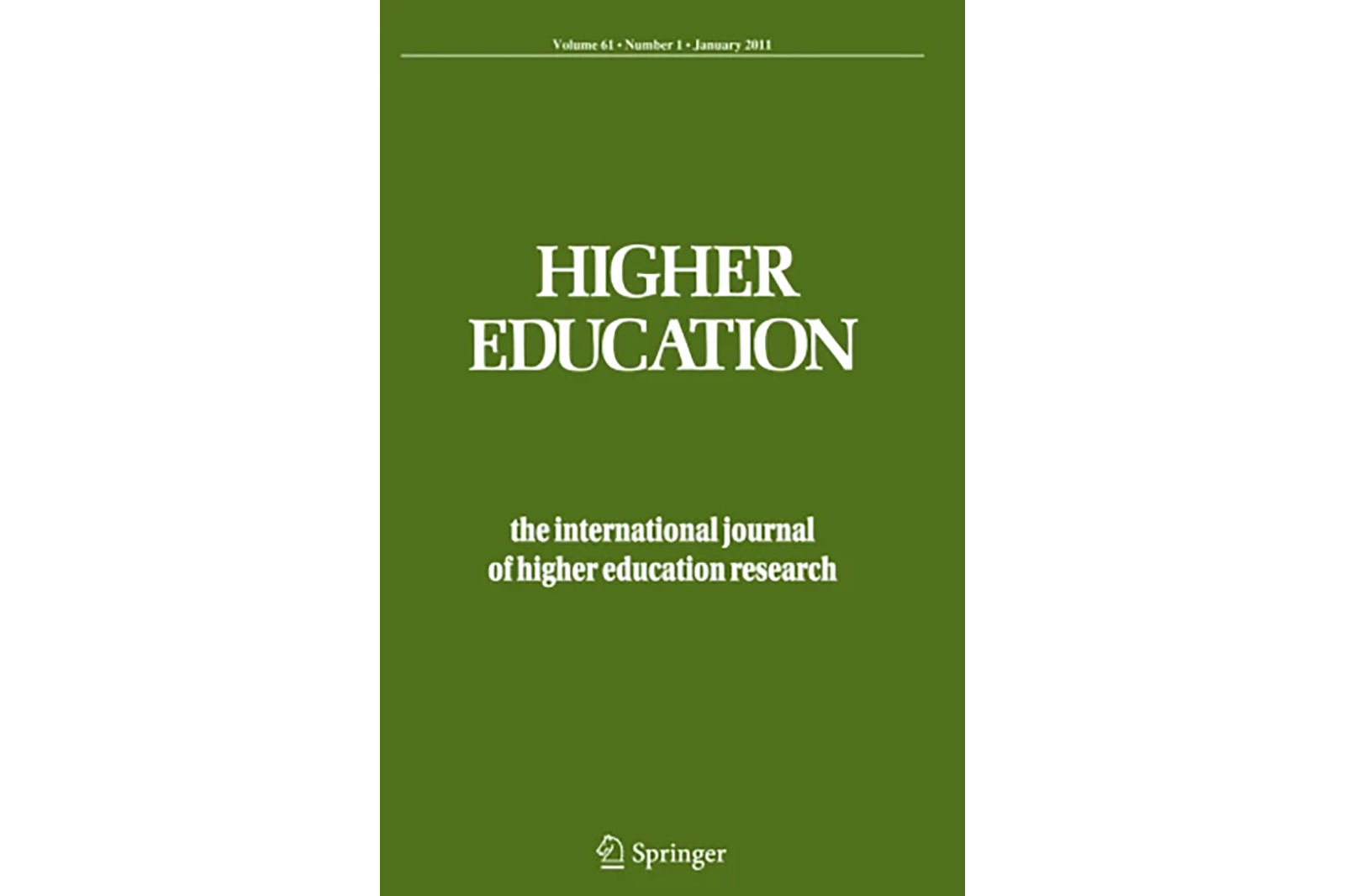
This analysis explores how higher education in prison policies impact educational access for incarcerated populations in five different national contexts: Australia, Nigeria, South Africa, the UK, and the USA.

This analysis explores how higher education in prison policies impact educational access for incarcerated populations in five different national contexts: Australia, Nigeria, South Africa, the UK, and the USA.

The Journal of Prison Education Research is a peer-reviewed academic journal that focuses on the field of prison education research. The journal is dedicated to providing a platform for researchers, practitioners, and policy makers to share their knowledge and research. It is is published regularly and is only available online.

The Journal of Prison Education Research is a peer-reviewed academic journal that focuses on the field of prison education research. The journal is dedicated to providing a platform for researchers, practitioners, and policy makers to share their knowledge and research. It is is published regularly and is only available online.

The third volume of the Journal of Higher Education in Prison (JHEP) will reflect upon advancements and persistent challenges for postsecondary education in prison and for college students directly impacted by criminal legal systems. Much has shifted in the landscape of higher education in prison since the launch of this journal in 2019. Authors are invited to contribute manuscripts that help define, contest, and contemplate this current moment of postsecondary education in prison and re-entry for/with directly impacted communities.

The third volume of the Journal of Higher Education in Prison (JHEP) will reflect upon advancements and persistent challenges for postsecondary education in prison and for college students directly impacted by criminal legal systems. Much has shifted in the landscape of higher education in prison since the launch of this journal in 2019. Authors are invited to contribute manuscripts that help define, contest, and contemplate this current moment of postsecondary education in prison and re-entry for/with directly impacted communities.

There are hurdles in Nebraska’s prison education system despite recent successes. Obtaining a post-secondary education while incarcerated is challenging, confusing and ever-changing. Community colleges in the state’s urban cores — like Southeast’s ‘Unlocking Potential’ initiative and Metro Community College’s 180 Reentry program — offer a path for incarcerated people to work toward a college degree. But the opportunities are limited and often difficult to access, according to four education program staff members.

There are hurdles in Nebraska’s prison education system despite recent successes. Obtaining a post-secondary education while incarcerated is challenging, confusing and ever-changing. Community colleges in the state’s urban cores — like Southeast’s ‘Unlocking Potential’ initiative and Metro Community College’s 180 Reentry program — offer a path for incarcerated people to work toward a college degree. But the opportunities are limited and often difficult to access, according to four education program staff members.

Mississippi Delta Community College marked a historic milestone May 14 at the Mississippi State Penitentiary by inducting incarcerated students into the state’s first Beta Omega Beta chapter, a part of Phi Theta Kappa.

Mississippi Delta Community College marked a historic milestone May 14 at the Mississippi State Penitentiary by inducting incarcerated students into the state’s first Beta Omega Beta chapter, a part of Phi Theta Kappa.

A market scan of technology tools and platforms that can expand and improve education and training options for people who are incarcerated. This market scan report is intended to be a resource for six categories of stakeholders—corrections officials, postsecondary leaders, employers, tech vendors and technologists, investors, and policymakers—who are interested in catalyzing the adoption of education technology in prisons and jails, either by working with other stakeholders and people who are incarcerated to design and implement new programs and solutions or by investing in or partnering with innovative companies that have the potential to grow and drive transformational change in this market.

A market scan of technology tools and platforms that can expand and improve education and training options for people who are incarcerated. This market scan report is intended to be a resource for six categories of stakeholders—corrections officials, postsecondary leaders, employers, tech vendors and technologists, investors, and policymakers—who are interested in catalyzing the adoption of education technology in prisons and jails, either by working with other stakeholders and people who are incarcerated to design and implement new programs and solutions or by investing in or partnering with innovative companies that have the potential to grow and drive transformational change in this market.

America’s prisons and jails are information deserts. Restrictions—and in some cases, outright bans—on internet access, combined with limited library services and the censorship of both print and digital materials, severely curtail incarcerated individuals’ connection to the outside world. Legal information is no exception. While access to legal information is both a constitutionally mandated right and a vital need for those seeking to challenge a conviction, contest conditions of confinement, or address family law matters, a growing body of research shows that incarcerated people face significant barriers to exercising that right. This report summarizes the first phase of our research and frames the broader project.

America’s prisons and jails are information deserts. Restrictions—and in some cases, outright bans—on internet access, combined with limited library services and the censorship of both print and digital materials, severely curtail incarcerated individuals’ connection to the outside world. Legal information is no exception. While access to legal information is both a constitutionally mandated right and a vital need for those seeking to challenge a conviction, contest conditions of confinement, or address family law matters, a growing body of research shows that incarcerated people face significant barriers to exercising that right. This report summarizes the first phase of our research and frames the broader project.

The Institute for Social Concerns at the University of Notre Dame and Notre Dame Programs for Education in Prison published this reentry guide for returning citizens based on the EJP publication Mapping Your Future: A Guide to Successful Re-Entry.

The Institute for Social Concerns at the University of Notre Dame and Notre Dame Programs for Education in Prison published this reentry guide for returning citizens based on the EJP publication Mapping Your Future: A Guide to Successful Re-Entry.

Open Campus is gathering insights through a short survey to better understand what information matters most to people working at the intersection of higher education and the criminal legal system. Responses will help guide content for College Inside, Open Campus' newsletter reaching 1,500 print readers and thousands more through prison tablets. They’ll also help JFF’s Center for Justice & Economic Advancement strengthen support for employers, educators, training providers, and corrections partners.

Open Campus is gathering insights through a short survey to better understand what information matters most to people working at the intersection of higher education and the criminal legal system. Responses will help guide content for College Inside, Open Campus' newsletter reaching 1,500 print readers and thousands more through prison tablets. They’ll also help JFF’s Center for Justice & Economic Advancement strengthen support for employers, educators, training providers, and corrections partners.

The Alliance for Higher Education in Prison is pleased to announce that the second annual Incarcerated Scholars Conference (ISC) will be held virtually October 21-22, 2025. The theme that will frame this year’s conference is Pathways to Possibility. We invite students and alumni of higher education in prison programs who are currently incarcerated to contribute to our conference by submitting a presentation proposal. We also invite incarcerated artists to submit their creative works for consideration (you do not have to be a current or former student to participate in this portion of the conference).

The Alliance for Higher Education in Prison is pleased to announce that the second annual Incarcerated Scholars Conference (ISC) will be held virtually October 21-22, 2025. The theme that will frame this year’s conference is Pathways to Possibility. We invite students and alumni of higher education in prison programs who are currently incarcerated to contribute to our conference by submitting a presentation proposal. We also invite incarcerated artists to submit their creative works for consideration (you do not have to be a current or former student to participate in this portion of the conference).
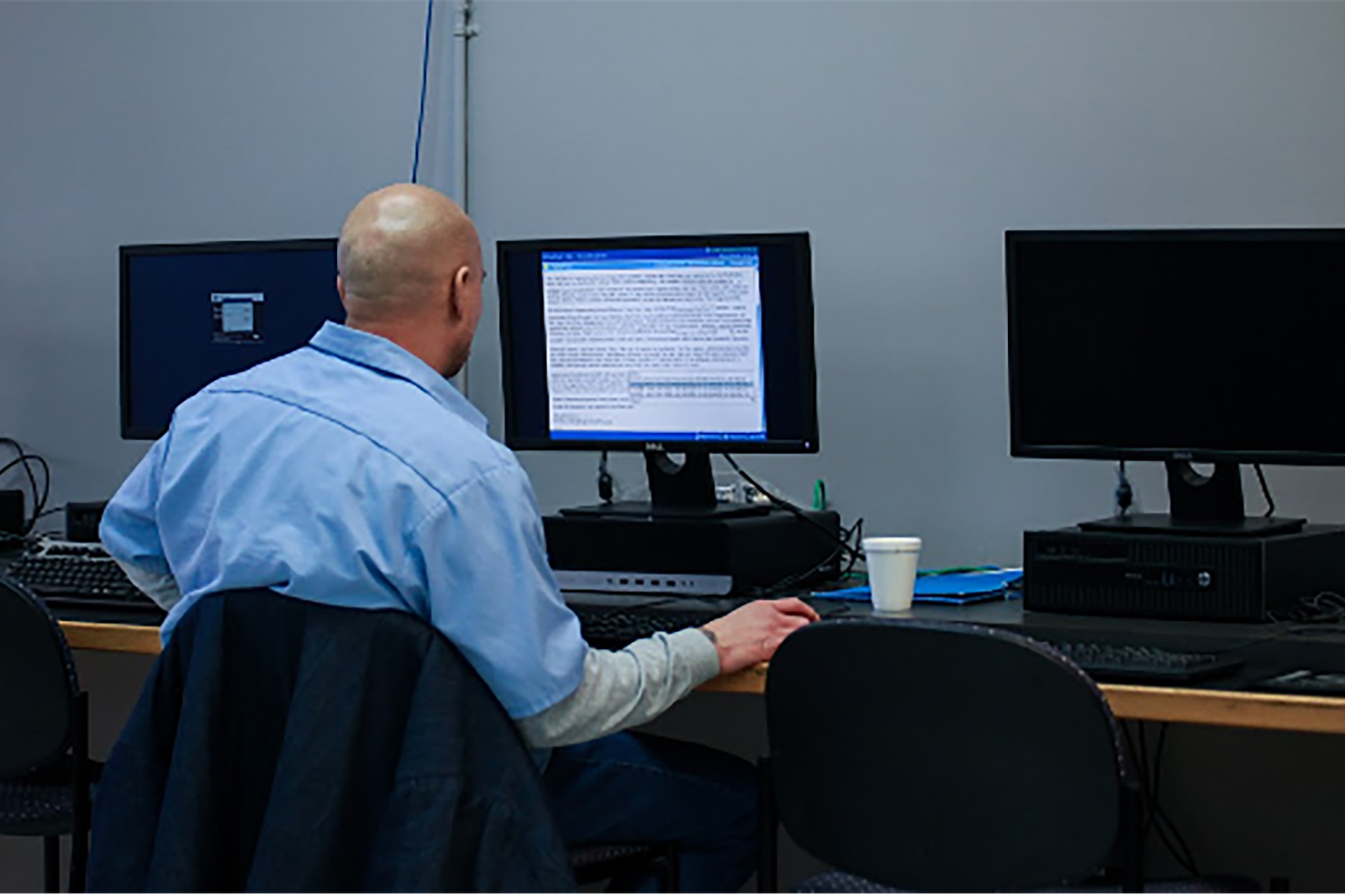
In one of Idaho’s nine prisons, an incarcerated person can choose to pursue their GED, take classes in finance or gardening, pursue trade certificates in fields like construction, or even learn how to code. However, traditional college courses have previously been out of reach, with the only option being clunky and unreliable “mail-in” courses. Now, several Idaho prisons have in-person classes for college credit.

In one of Idaho’s nine prisons, an incarcerated person can choose to pursue their GED, take classes in finance or gardening, pursue trade certificates in fields like construction, or even learn how to code. However, traditional college courses have previously been out of reach, with the only option being clunky and unreliable “mail-in” courses. Now, several Idaho prisons have in-person classes for college credit.

The 2025 Rise Up Conference is scheduled for September 8-9, 2025 - and it's time to make your voices heard. If you are a directly impacted student, higher education in prison practitioner or alum, or other kind of professional, and you have something to say about one of this year's six tracks, Rise Up wants to hear from you. Check out the Rise Up Conference website or, if you're ready to submit your proposal, head right to the submission form. Currently incarcerated presenters are also welcome to apply, and Rise Up will work with those authors on a presentation format that accommodates their circumstances.

The 2025 Rise Up Conference is scheduled for September 8-9, 2025 - and it's time to make your voices heard. If you are a directly impacted student, higher education in prison practitioner or alum, or other kind of professional, and you have something to say about one of this year's six tracks, Rise Up wants to hear from you. Check out the Rise Up Conference website or, if you're ready to submit your proposal, head right to the submission form. Currently incarcerated presenters are also welcome to apply, and Rise Up will work with those authors on a presentation format that accommodates their circumstances.

Developing pathways to economic mobility isn’t just about helping people who are incarcerated—it’s about enriching their families and communities, filling workforce gaps, and driving economic growth.

Developing pathways to economic mobility isn’t just about helping people who are incarcerated—it’s about enriching their families and communities, filling workforce gaps, and driving economic growth.

To better understand how departments of corrections are approaching oversight and evaluation, and to get a sense of the kinds of documents and procedures being created for that purpose, Ithaka S+R spoke to Macy Pickman, education director in the Kansas Department of Corrections, who has taken the time to explain how she has worked with college partners to develop guidelines and procedures for the Best Interest Determination process.

To better understand how departments of corrections are approaching oversight and evaluation, and to get a sense of the kinds of documents and procedures being created for that purpose, Ithaka S+R spoke to Macy Pickman, education director in the Kansas Department of Corrections, who has taken the time to explain how she has worked with college partners to develop guidelines and procedures for the Best Interest Determination process.

This new case study highlights how leaders in Tennessee have collaborated to create the Tennessee Prison College Coalition (TPCC), which has expanded and improved postsecondary education for incarcerated students across the state. Drawing on interviews with key stakeholders from TPCC, this case study provides insight and recommendations for policymakers and advocates across the country to expand access to education for justice-impacted individuals in their own communities. It can inform state efforts to scale postsecondary programs in prison and align state higher education, workforce development, and public safety goals.

This new case study highlights how leaders in Tennessee have collaborated to create the Tennessee Prison College Coalition (TPCC), which has expanded and improved postsecondary education for incarcerated students across the state. Drawing on interviews with key stakeholders from TPCC, this case study provides insight and recommendations for policymakers and advocates across the country to expand access to education for justice-impacted individuals in their own communities. It can inform state efforts to scale postsecondary programs in prison and align state higher education, workforce development, and public safety goals.

Originally launched by Southern Illinois University, Carbondale (SIU) in 1965, the American Penal Press Contest is back! Co-sponsored by SIU and Pollen Initiative, the contest aims to strengthen the prison press by shining a light on its strength, providing professional feedback, encouraging healthy competition between publications, and building common ground between the prison press and the outside journalism industry. Entries will be accepted until May 30, 2025 and winners will be announced in September.

Originally launched by Southern Illinois University, Carbondale (SIU) in 1965, the American Penal Press Contest is back! Co-sponsored by SIU and Pollen Initiative, the contest aims to strengthen the prison press by shining a light on its strength, providing professional feedback, encouraging healthy competition between publications, and building common ground between the prison press and the outside journalism industry. Entries will be accepted until May 30, 2025 and winners will be announced in September.

WIBW and The Topeka Capital-Journal in Topeka, Kansas featured our incredible fellow, Amy, and highlighted her experience working remotely for the Alliance while finishing her degree. As part of our Education in Action initiative, she's helping us expand opportunities for incarcerated learners in Kansas and beyond!

WIBW and The Topeka Capital-Journal in Topeka, Kansas featured our incredible fellow, Amy, and highlighted her experience working remotely for the Alliance while finishing her degree. As part of our Education in Action initiative, she's helping us expand opportunities for incarcerated learners in Kansas and beyond!